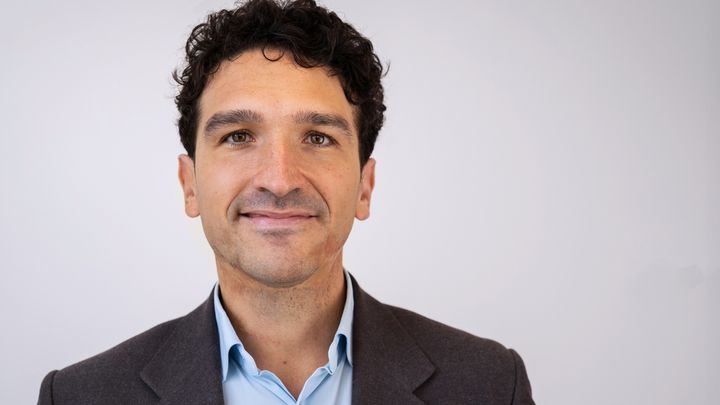Leading academics call for extending, reframing Sustainable Development Goals
A group of leading academics are calling for the UN Sustainable Development Goals to be extended past their 2030 target date and updated with consideration for the impact of artificial intelligence (AI), and with more input from communities affected by the goals, among other recommendations.

Halfway to the targeted completion date of 2030, many of the UN’s ambitious 17 Sustainable Development Goals (SDGs) are off track or progressing too slowly, due to the slowing of the global economy by COVID and international conflicts. In the run-up to the Summit of the Future in New York next September, the authors are recommending the goals be extended to 2050 and retooled with an ambitious timeline and greater clarity about specific goals — such as those pertaining to climate and “planetary health”.
Writing in Nature, the authors recommend the UN’s 180 member states further extend many of the goals’ individual targets to as far as 2050. They also recommend action to reworking individual targets for each goal. The paper was led by Francesco Fuso-Nerini, director of the Climate Action Center at KTH Royal Institute of Technology and honorary researcher at the University of Oxford; together with Mariana Mazzucato, University College London; Johan Rockström, Potsdam Institute for Climate Impact Research; Harro van Asselt, University of Cambridge; Jim W. Hall, University of Oxford; Stelvia Matos, University of Surrey; Åsa Persson, Stockholm Environmental Institute; Benjamin Sovacool, Boston University; Ricardo Vinuesa, KTH Royal Institute of Technology; and Jeffrey Sachs, Columbia University.
Enacted in 2015, the 17 Sustainable Development Goals cover such global challenges as hunger, poverty, health, climate action, education, gender equality, peace and biodiversity. Each of the goals is comprised of specific targets.
Fuso-Nerini says some goals and regions have progressed faster than others, but most of the world is lagging behind – particularly on climate and biodiversity targets. Furthermore, many targets are too vague and difficult to measure. Another key challenge is to prevent countries from progressing at the expense of others, he says.
The paper refers to an urgent need for updated pathways and milestones toward reaching all SDGs including integrating net-zero greenhouse gases emissions, as well as strengthening global governance of the transition through existing frameworks agreed upon by the members of the UN. The authors also say adapting the goals to be relevant to 2050 will require more inclusive consultations with scientists, indigenous populations, marginalized communities and the private sector.
As steps toward strengthening the goals, they recommend measures such as framing goals as missions with clear targets, and reforming global finance architecture to enable more public investment in the reaching the goals.
Planetary health however occupies a central issue in the framework of the SDGs, he says, given that the world has already transgressed six of nine planetary boundaries that regulate the stability and functioning of Earth.
“Achieving the social and economic goals can’t be done at the expense of planet,” he says. “What keeps getting left behind are the climate and biodiversity goals, so the base layer for achieving the SDGs is a healthy planet that can support the achievement of all social and economic goals.”
Read the article in Nature: https://doi.org/10.1038/d41586-024-01754-6
Contacts
Francesco Fuso-NeriniKTH Royal Institute of Technology
francesco.fusonerini@energy.kth.seSubscribe to releases from KTH Royal Institute of Technology
Subscribe to all the latest releases from KTH Royal Institute of Technology by registering your e-mail address below. You can unsubscribe at any time.
Latest releases from KTH Royal Institute of Technology
Study explains why new kinds of steel needed to build lead cooled reactors11.12.2025 14:23:59 CET | Press Release
Safer operation, better fuel efficiency and lower waste mark lead-cooled nuclear power as a potentially dramatic shift from the water-cooled nuclear stations the world has relied on since the mid 20th century. A recent Swedish study casts new light on how to avoid corrosion in the steel used to build these next-generation nuclear facilities.
Alternative to BPA passes toxicity and sustainability standards set by EU innovation guidelines4.12.2025 11:07:37 CET | Press Release
Polyester and a host of other plastic products could potentially be manufactured with non-toxic and sustainable BPA alternatives identified in a multidisciplinary study published today by researchers in Sweden.
Study shows potential for more affordable and efficient hydrogen gas production3.12.2025 15:29:35 CET | Press Release
A recent advance in the science of hydrogen fuel production could enable higher output and more sustainable production of this renewable energy source, researchers with Stockholm’s KTH Royal Institute of Technology report.
Calcium-sensitive switch designed to boost efficacy of cancer drugs24.11.2025 21:11:53 CET | Press Release
Cancer-fighting antibody drugs are designed to penetrate tumor cells and release a lethal payload deep within, but too often they don’t make it that far. A new study shows how this Trojan Horse strategy works better by exploiting calcium differences outside and inside cells.
Potential treatment may prevent brain damage in premature babies11.11.2025 11:10:46 CET | Press Release
A treatment that could protect premature babies from brain damage showed promise in a recent study in Sweden. Using a first-of-its-kind prenatal brain model created with human cells, researchers observed new details about the effects of cerebral hemorrhages on stem cells during premature birth. And they successfully tested an antidote that reduced the damage.
In our pressroom you can read all our latest releases, find our press contacts, images, documents and other relevant information about us.
Visit our pressroom